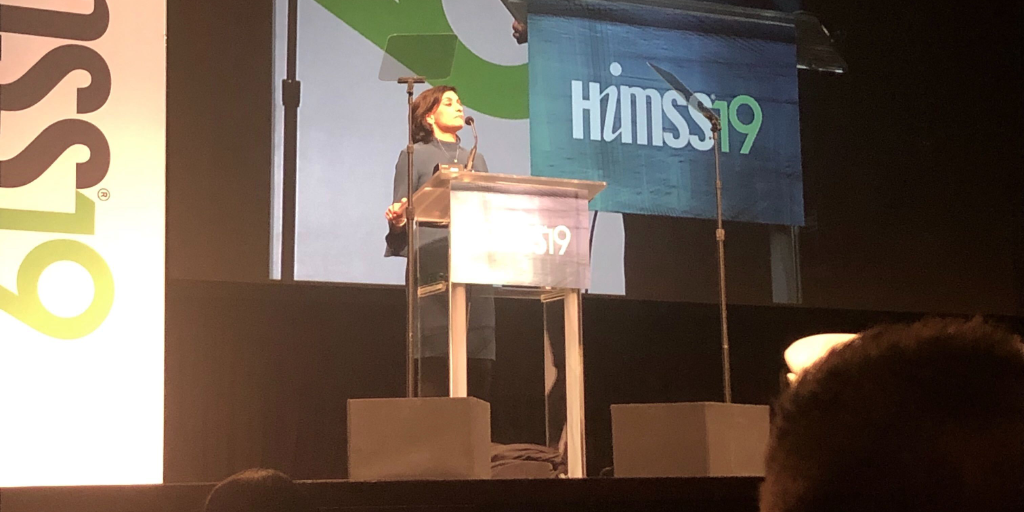Topics: Interoperability, Industry insights, Health IT
MIPS Final Score Calculation in 2019: What You Need To Know
The CY 2019 Medicare Physician Fee Schedule Final Rule involves a slew of regulatory changes that will apply to the 2019 performance year. Of course, wading through the final rule to find and understand the most important features of the policy can be grueling; but you’re in luck, because we’ve already done it so you don’t have to! In today’s blog, we’re focusing on how MIPS final scores will be calculated, as well as factors that may lead to reweighting, in 2019.
Topics: MACRA & MIPS, Policy
The QPP Year 3 Change That May Hugely Impact RCM Companies
Since the latest Physician Fee Schedule and Quality Payment Program final rule was released in November 2018, organizations across the country have scrambled to understand key changes that have been made and adapt to their implications. In today’s blog, I want to focus on one change that may well prove significant to billing and Revenue Cycle Management teams: groups of 16 or more can no longer report via claims.
Topics: PRO Tips, MACRA & MIPS, Policy, RCM
Dr. Anand Shah - The New CMS Senior Medical Advisor for Innovation
In a recent announcement, CMS Administrator Seema Verma named Dr. Anand Shah, a radiation oncologist at the National Cancer Institute, as the new Senior Medical Advisor for Innovation at CMS.
Topics: CMS
Your One-Stop Guide To Understanding QP and Partial QP Determinations in 2019
When the Medicare Access and CHIP Reauthorization Act of 2015 (MACRA) was signed into law, it created two distinct pathways for reporting: the Merit-Based Incentive Payment System (MIPS), and the Advanced Alternative Payment Model (Advanced APM). Under MIPS, Medicare Part B payments are tied directly to clinician performance based on Composite Performance Scores (CPS), whereas the Advanced APM track encourages groups of clinicians to take on greater risk (and reward) for cost and quality of care.
In this week’s blog, we’re taking a deep dive into Qualifying APM Participant (QP) and Partial QP Determinations, as laid out in the 2019 QPP final rule.
Topics: Policy, Eligibility, APMs
Have You Heard Of Patient Relationship Codes? They May Soon Impact Your Bottom Line.
A recent perspective article in the New England Journal of Medicine begins with a bold claim: that patient relationship categories and billing-code modifiers, which clinicians have been able to voluntarily submit since January 1, 2018, “may be one of the least known but most important provisions of the Medicare Access and CHIP Reauthorization Act of 2015 (MACRA).” In today’s blog we’ll explore how patient relationship codes may, as the article predicts, end up impacting reimbursement.
Topics: MACRA & MIPS, Policy, Cost Performance Category
Disillusioned About MIPS Incentives? Here’s Why You Shouldn’t Be.
If your organization invested significant money and time into achieving a high MIPS score in 2017, the final incentive payment you received may have felt… well, disappointing. As easy as it may be to recognize the ideological importance of shifting from fee-for-service to value-based care, many clinicians and organizations feel unable to practically justify such an investment in the absence of a meaningful financial incentive.
But there’s good news: incentives will continue to rise in coming years, and those achieving the highest scores will soon find their efforts rewarded on a much larger scale. Here’s why.
Topics: PRO Tips, MACRA & MIPS, Policy, ROI
Everything You Need To Know About MIPS Facility-Based Quality and Cost Performance Categories
As laid out in the 2019 MACRA final rule*, one of the ways CMS hopes to expand participation options in the program’s third year is by offering certain facility-based clinicians, if they participate as a group, the option to use facility-based Quality and Cost performance measures. CMS expects to release a facility-based scoring preview for this option, which does not require any data submission, in Q1 of 2019. In today’s blog, we’ll take an in-depth look at the details of facility-based scoring and how it will be applied.
Topics: MACRA & MIPS, Policy, Quality Performance Category, Cost Performance Category
Topics: Interoperability, Industry insights, Health IT
Three Steps Organizations Can Take to Foster a Patient-Centric Experience
Patients want to be treated with dignity and respect. And when they are, as the American College of Physicians (ACP) points out in a recent position paper on patient engagement, they are more likely to interpret their experience as a quality care encounter. Organizations can improve outcomes and adherence to care plans by helping patients and families feel central to their own care experience, and research even suggests that patient experience is a more important factor in patient loyalty than standard marketing efforts.
Topics: PRO Tips, Hospitals & Health Systems, VBC









